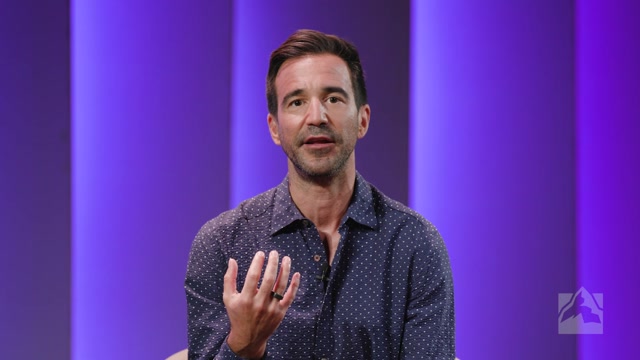
Dr. Tomas describes how your use of positive words in the midst of a crisis will correlate with your team’s morale, well-being and performance.

Dr. Tomas describes how your use of positive words in the midst of a crisis will correlate with your team’s morale, well-being and performance.
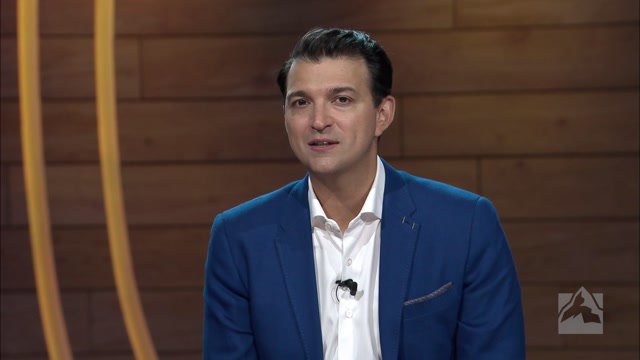
Rory Vaden describes how to get past your natural desire to do things yourself.
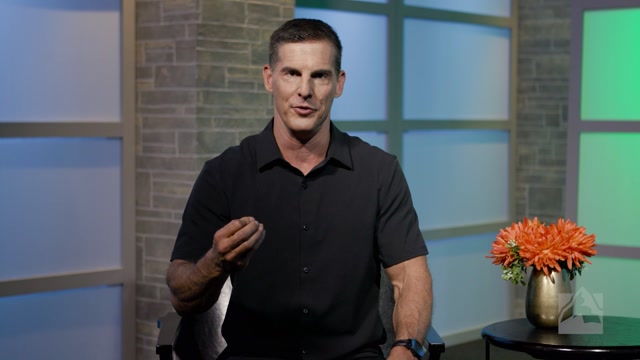
Craig Groeschel explains how to revisit bold statements made in the past that might be limiting your leadership impact today.
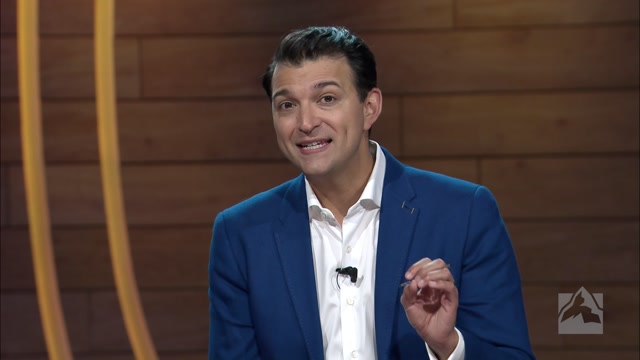
Rory Vaden explains the surprising mindset shift you need to make when you move from individual contributor to leader.
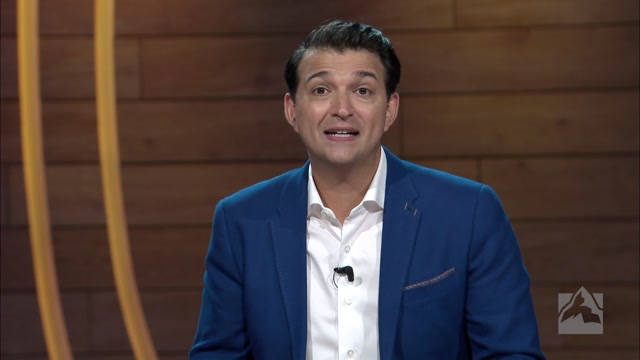
Rory Vaden shares tips on overcoming the emotional pull from your email inbox.
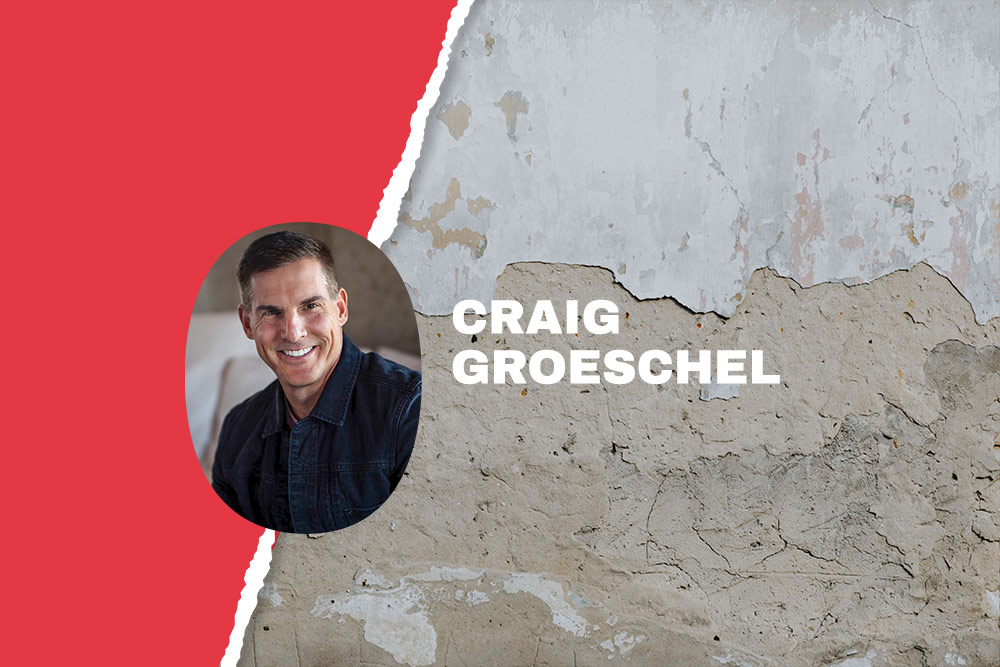
Summit Champion Craig Groeschel dishes out incredible leadership content all year round on the highly-rated Craig Groeschel Leadership Podcast. But GLS insiders know that he ups his game and delivers his best talk of the year at the GLS. He will be sharing a brand-new talk on Leading Through the Dip, specific for #GLS20.
Do you want to get a maximum return on the time and money you invest in the projects you are leading? Do you wonder what people mean when they use the phrase “GETMO”? For these insights (and more!), watch this fantastic talk by Summit Champion and Life.Church Lead Pastor Craig Groeschel from GLS 2019.
To hear more from this incredible leader, and get a leadership boost of insight and encouragement, join us online or in-person at a participating host site for the GLS20 Replay on October 22-23, 2020 or November 6-7, 2020. Watch 16 full-length, world-class faculty talks, and also experience the incredible entertainment and programming from the live event in August!
If you’re unable take part in the Replay events, don’t worry! You can also catch this amazing content with GLS On-Demand where you can access 14 of the 16 full-length talks for one year, giving you time to watch at your convenience.
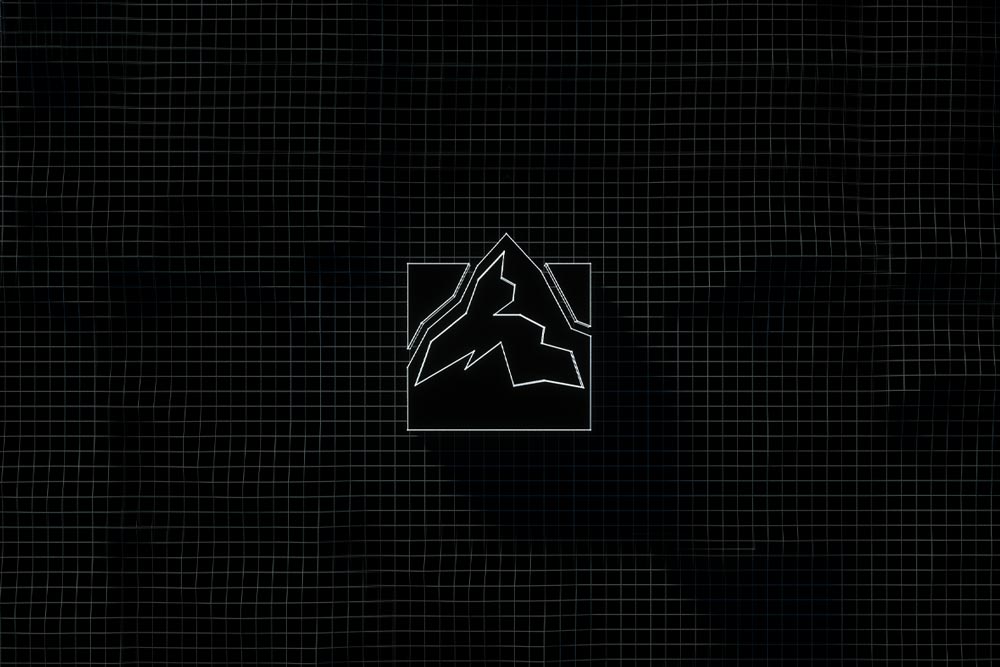
Those of you who will be joining us will experience a full Replay of the entirety of GLS20 including ALL16 full-length talks as well as all the entertainment and programming elements from the live event in August. See the full lineup >>
This never-before-done Replay viewing will be shared via the GLS Online Experience, our state-of-the art digital platform, or in person at micro-gatherings or in small venues across the U.S. Find a location to attend >>
One thing we know: Your leadership matters…and it matters now more than ever.
We have seen it time and time again. The two days you invest in yourself at the GLS can have an outsized impact on your life when you apply what you learn. And a few minutes of preparation can pay big dividends. So, as you place that “out of office” message on your email and work through those final projects on your to-do list, be sure to make time to prepare yourself for what you are about to experience.
In this video, Marcus Buckingham shares how it is important to reflect on your year and make sense of your experience thus far.
Come to the Summit with a prepared mind. Process what is happening in your life, in your team and with your customers and followers. Learn how to achieve the mission you’ve set out to do at the Summit and come to the event with a prepared mind by making sense of your experiences thus far and bring in that clarity of mind to the event.
In this video, Beth Comstock challenges you to open your mind up to those you might be surprised to learn from.
Ask yourself, what are two or three things I can take away that will challenge me? It might be lessons from people you think you might think you’re not going to learn from—but that’s where the learning happens. Be prepared for the unexpected.
In this video, Rory Vaden, gives you permission to ignore everything else that is going on for these two days so that you can fully focus and absorb yourself in what is being share at the Summit.
You have an opportunity to access the most amazing world leaders, change makers and thought leaders over these two days. In order to fully benefit and pour into yourself and your team, give yourself permission to create space and invest in yourself—come and learn things to grow as a person and an organization.
In this video, watch Craig Groeschel share what he’s looking forward to most.
https://www.youtube.com/watch?v=1M1R9pPeiMU?rel=0
Follow @GLNsummit on Twitter, Facebook, Instagram, LinkedIn and YouTube. tweet, post and share about your experience, and connect with Summit enthusiasts all across the globe! This year’s official hashtag is #GLS20.

If you’re a leader, by definition your job is to innovate. Leaders take us into a future that is different than the one we’re in today. We innovate the present to create a desired future.
Often when we think of innovation, we think of coming up with new ways of doing things—a new product or system, service opportunity or invention of technology. In fact, oftentimes the hardest question for a leader isn’t whether to innovate, but where to innovate. Do we focus on marketing or product? Do we focus on technology or branding? Do we innovate our service, or do we experiment with pricing?
Let me cut through the noise and say it plainly:
If you’re going to innovate something, innovate you.
Oftentimes self-innovation is the last thing we think about when we’re trying to lead. I can’t tell you how many times I’ve spoken to CEO’s of companies who think their services, programs, technology or teams need to innovate but they don’t.
Many of my current clients are leaders of multi-billion-dollar companies and they all have one thing in common: they understand that if they want their teams or culture or bottom line to change, they need to change. The most vital focus of innovation is on themselves so they can lead the change they want to see in others.
So, I want to explore three powerful areas of self-innovation.
These are the areas of self-innovation where leaders need to focus. We avoid them at our own peril.
“The listening that you are shapes the future you live into.” – Steve Hardison
Every person has what our firm calls “Listenings.“ These are ways of filtering and interpreting the world around you.
When you hop on a meeting, your Listening might be:
Teams and companies and cultures also have Listenings.
Your life is the mirror expression of your Listenings. Your Listenings create your perception of yourself, your market and your team.
We think we see the world as it is, but we actually see the world as we listen.
What I am calling Listenings, you’d probably call Facts. You treat “this meeting is a waste of time” like it’s true. But it’s not. It’s a Listening.
The reason why Listenings are powerful is twofold.
So, if I have a Listening of, “My team doesn’t want to hear what I have to say,” then I’m more likely to not speak up, more likely to speak quietly and less likely to be heard, which perpetuates the Listening.
Put another way: Listenings want to survive. They are self-perpetuating. And we tend to create how we listen. Which is why my coach, Steve Hardison, told me years ago that “Listening shapes the future you live into.”
If this is true, then if you want to innovate the future, you have to innovate your Listenings. You have to create new Listenings that will get you and your team new results.
2,000 years ago, a leader put it this way: “He who has ears, let him hear.”
What he was saying was, “Tend to your Listening.” If you don’t have the right Listening—the right ears to hear—then you won’t be able to see the possibilities right in front of you to move your leadership and teams forward.
Innovate your Listening, and it changes everything.
“You” is a very fluid concept right now. — Will Smith, Hitch
Oftentimes the biggest belief that keeps us from innovating is believing that things can’t or shouldn’t change, or that the change won’t be worth it.
This is one of the greatest tragedies of the 20th Century: seeing people as fixed and static. Your personality is fixed. Your traits are fixed. In the words of Popeye, we tell ourselves, “I yam what I yam.”
But this is mostly false. We are dynamic, fluid and ever changing. Full of possibility. Of course, not everything about us is fluid, but we’re more fluid than we think.
It is possible to innovate your Identity.
Several times a year, I go into prisons in partnership with Defy Ventures to offer support and coaching to men and women with criminal histories. When they go through Defy’s program, the recidivism rates drop from over 50% down to 7%. This is because, in part, they choose a new identity for themselves. They shift from seeing themselves as Criminal or Helpless and choose an identity that says, Valuable and Powerful. This shift in identity, this spiritual innovation, transforms people from having harmed society to becoming incredible contributors to society.
If transformation can happen with them, why not us? Why not you?
In the ancient texts of the Christian faith, we find a God who is constantly renaming people. I always thought that was weird, until I realized how powerful it is to innovate ourselves.
Currently some of us coaches at Novus Global are doing a book club on coaching with several people who have recently gotten out of prison. When we sign onto Zoom, we change our names to an alliterative fun first name and our first name becomes our last name (for example: Jolly Jason). This past week, I asked everyone on the call to call each of us by our new first name. So, if someone had a question for me, they said, “Jolly, what do you think about…?”
I can’t tell you how powerful it was to be called by a different name.
Suddenly I didn’t have to be “Jason” with all the baggage and history and beliefs and meanings that came with that. For one hour last Monday, I was “Jolly.” I was free. I felt the freshness of new possibilities. It was only for an hour, but it felt good.
One of the indicators of success with our clients at Novus Global is when friends and family and coworkers of our clients say, “Who are you and what have you done with my boss?” Or “Who are you and what have you done with my wife?” They say this because our clients are behaving in ways that those around them would never expect. They behave in new ways because they are learning to see themselves in new ways.
That’s the power of upgrading your Identity.
“Habits change into character.” – Ovid
So, how do you innovate your Identity and Listenings? Change your habits.
Research suggests that 40% of your day is created by habits.
And not all habits are created equal.
When you want to innovate yourself, the most important habits to develop in your life are the ones that shape your Listenings and your Identity. Leaders who take self-innovation seriously develop ever-adapting rituals, iconography, relationships and reward systems that reinforce the new Listenings and Identity that they’re striving to create.
The first step into innovating Identity and Listenings is to discover all the habits you already have that keep things as they are.
Our habits unintentionally reinforce our Listenings and Identity. For example, if the first thing I do every morning is grab my phone and anxiously check emails, texts or see what’s going on with social media or the news, I may be reinforcing the Listening of,
“I don’t have time to take care of myself” or
“Anxiety is necessary to be productive” or
“I have to stay connected to the world in order to be happy” or
“The world is horrible and it’s getting worse.”
These Listenings will shape our entire day. Which in turn shape our lives.
The goal of creating new habits is for them to be tailor made for cultivating new Listenings and rooting and establishing ourselves in a more resourceful Identity.
So, let me ask you: as a leader, what are your habits? Are they grounding you in the most resourceful Identity? Are they shaping new Listenings or perpetuating old ones? How would you know?
BECOMING A SELF-INNOVATION PRACTITIONER
When it comes to innovation, you want to be a practitioner not a thought-leader. The reality is it doesn’t matter what we think about innovation, what matters is what we’re innovating.
Eight years ago, I was broke, broken and essentially homeless. I had just gone through a heartbreaking divorce. I couldn’t afford to pay rent. I was sleeping on the couches of friends.
I didn’t realize it at the time, but my Identity had become:
My Listenings had become:
I would have told you those were the facts. (i.e. I was poor. Fact. I was helpless. Fact. Etc.).
It took a coach to allow me to see that they were choices. And doing the work to innovate my Listenings and Identity has—among other things—allowed me to become the founder of multiple companies with coaches all over the world serving hundreds of clients, including elected officials, professional athletes and leaders of multi-billion-dollar companies. We get to work alongside leaders and companies and help them make the same changes we’ve made—changes that have transformed so many lives and communities.
But it starts with self-innovation. When we as leaders create time and space in our calendars to develop new habits that innovate our Listenings and Identity, we will begin to see patterns and strategies and ideas that were currently hidden from us in our old ways of being.
Our teams will begin to see and behave in new ways, and we will begin to create and innovate into a future that is currently beyond our imaginations.

Our nation continues to be stirred by racial injustice and social unrest. At the Global Leadership Network, we recognize these universal issues require leaders to step up and engage. Research shows increasing diversity on teams and in every sector of society improves productivity and morale, adding value within organizations. In this episode of the GLS Podcast, we asked Dr. David Anderson and Dr. David Livermore to continue their conversation on racial and cultural intelligence. They explore the tough topics—institutional racism, the efficacy of protest, the concept of reverse-racism and what you can do to lead with truth and grace in this cultural moment.
1. Dr. David Anderson told several stories about racism that he has experienced in his life. How have you experienced or witnessed racism in your life?
2. What did you think about Dr. Anderson’s comments on reverse racism and institutional racism? Do you see those issues as a problem? How do you think we solve issues that are systemic in nature?
3. Dr. Anderson shared some practical things people could do to change to become more diverse in their leadership mindsets. Take a look at the list below and make a checkmark next to the actions that would be possible in your life.
_________Stand with African American brothers and sisters in protest
_________Use your power in your organization to promote greater racial inclusion
_________ Intentionally build a relationship with someone of a different race
_________Have a tough conversation and be willing to be called a racist
_________ Intentionally go to places where people are racially different than you
_________ Diversify your feeds by following people of a different race
_________ Diversify your reading by purchasing books by authors of a different race
_________ Talk to people in your own racial group about what you are experiencing
4. Taking a look at your checkmarks, what isone thing you could do this week to increase your participation in the race conversation? Put a date in your calendar and do it!
Samaritan Woman at the Well (John 4)
Real Talk with Dr. David Anderson
Letters Across the Divide: Two Friends Discuss Racism
Driven by Difference: How Great Companies Fuel Innovation Through Diversity
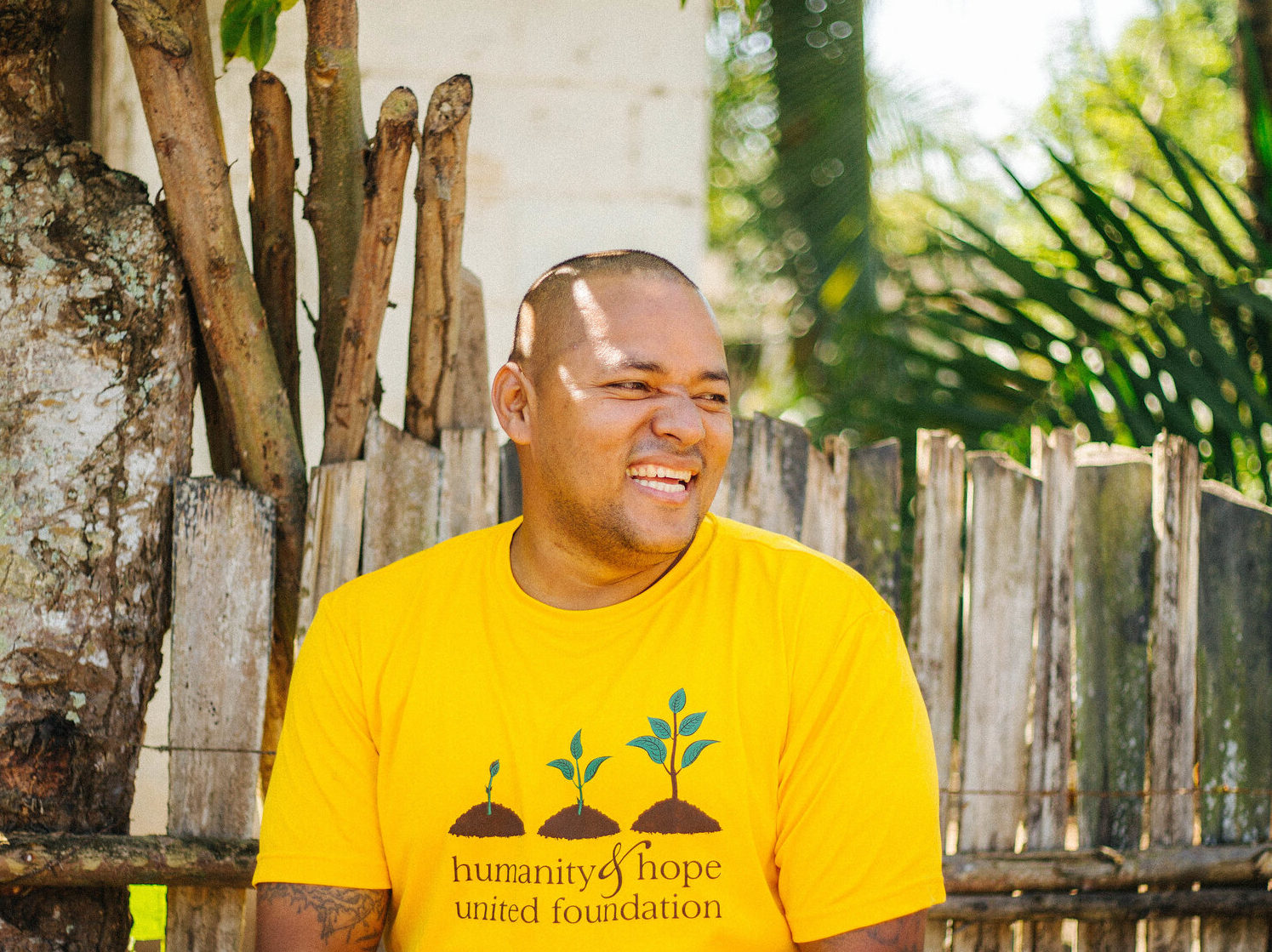
When Riley Fuller, co-founder of Humanity and Hope United, first attended The Global Leadership Summit in 2014, he discovered firsthand what can happen when people are equipped and empowered for their purpose. “It felt like God giving me the tools to bring to life what he had given me the dream for—how to lead consistently, how to be a leader other people love to follow, how to follow others, how to truly lead with love, active humility and empathy, and doing it in a way where I can put my heart into it, trusting God for the outcome,” said Riley. Having gone to the Summit every year since then, the Summit has helped him grow in his leadership, expand his ministry and also start Generous Coffee with a friend to help generate funds to support the ministries they care about.
…they said they felt known, valued and accepted—‘I feel like I’m good enough.’
After discovering the Summit was offered globally, Riley decided to bring it to the leaders of Humanity and Hope United from their small village in Honduras, “There were people attending who had never left rural Honduras,” Riley explained. “I remember them looking around, seeing how they felt a little bit out of place. Then I asked about what they got out of it, and they said they felt known, valued and accepted—‘I feel like I’m good enough.’”
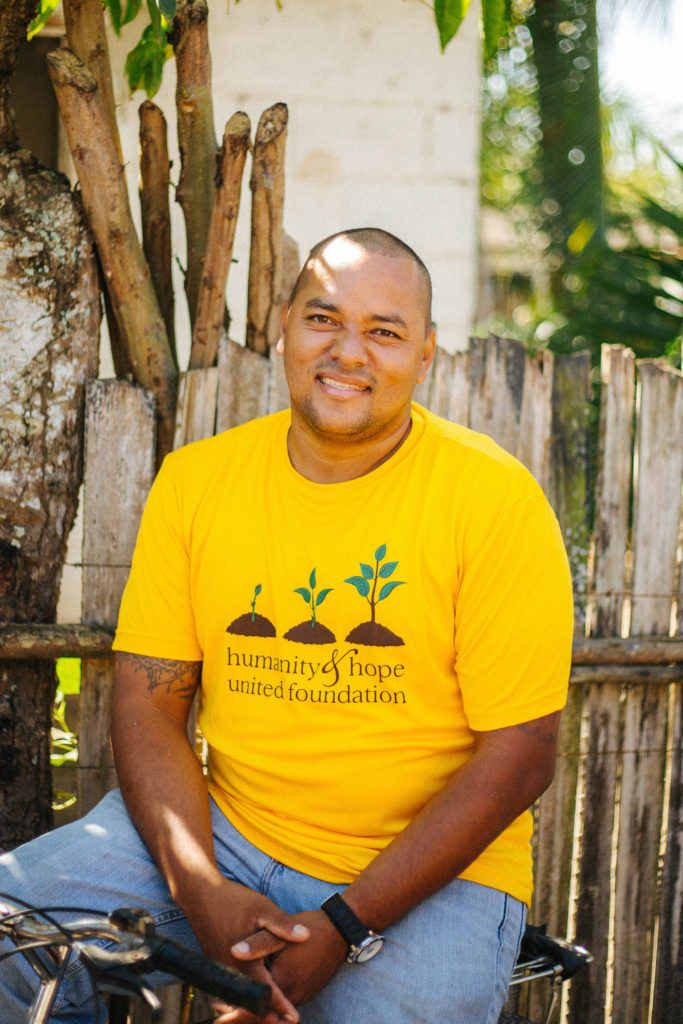
When you really dive down into leadership, you realize how God-breathed the concept of real leadership is. When local leaders get better, and the local church gets better, everybody gets better. One of the leaders Riley was able to introduce to the Summit is a man named Darwin Suazo, the project and sales manager for Humanity and Hope United in Honduras. Darwin’s is a remarkable transformation story, showing how God brings people into your life at strategic moments, allowing you to discover your purpose and true passion.
When Darwin had an opportunity to pray over the Summit audience during one of the event’s featured videos, this vision came true!
“Darwin had an incredible experience at the Summit in 2020!” Riley exclaimed. “He learned things that are going to transform his leadership and help him make his people better. Interestingly and powerfully, a prophecy over his life also came true at Summit this year.”
As it turns out, when Darwin was in prison in the U.S., a preacher had a vision over his life that he would speak internationally about Jesus and help impact people’s lives with hope all across the world. When Darwin had an opportunity to pray over the Summit audience during one of the event’s featured videos, this vision came true! “Darwin is one the best leaders and kindest people I’ve ever met,” said Riley. “His heart is a reflection of Jesus and he fights hard for vulnerable people every single day.”
Darwin was born in Honduras but moved to the United States at the age of 7 with his mom and brother. He later returned to Honduras and joined the team at Humanity and Hope United, but not before a difficult journey. “My mom had three jobs and worked hard to provide for us,” said Darwin. “But life was not easy for our family.”
“One of my brothers started to get involved in drug trafficking,” Darwin explained. “At the same time, I was hanging out with people who were involved in organized crime; I started partying, smoking and doing drugs.”
“When I saw my mom, she would tell me to sit down in bed, and then she would get on her knees to pray for me. She told me God loved me, but I didn’t believe that God could love someone like me.”
We are doing what God has called us to do—loving one another. And what better way to love one another than by helping one another?
“I continued my life of partying with no fear in my heart. When I would go to jail, I would read the Bible, pray to God and promise to be better, but they were fake promises—I would get out of jail and continue to live the same lifestyle.”
“During one stint in jail, I met Gerardo. He would preach to me and I would always run him off. But one night, I woke up crying. I heard a voice that said, ‘I’m the one that’s calling you.’ I knew it was God talking to me. That night, I told God I would serve Him but that I needed His help. The next day, I asked Gerardo if there was going to be church service that day. He had a big smile on his face. After that day, I started serving God in jail and sharing His message with others.”
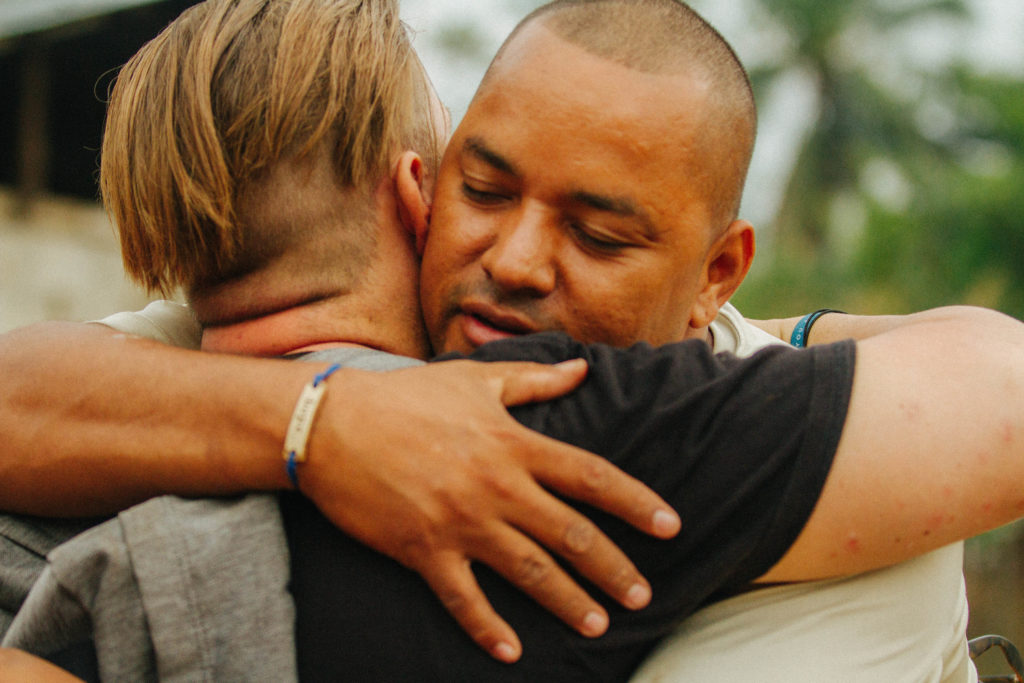
When Darwin was eventually released, he moved back to Honduras, met his wife and started a beautiful family. Now he works for Humanity and Hope United. “We serve people in rural Honduras, helping them access better jobs, education, healthcare and so much more,” said Darwin. “We are doing what God has called us to do—loving one another. And what better way to love one another than by helping one another?”
When I think about the prison cell God pulled me from, and then think about where He has me now, I’m encouraged.
“The part of my work that excites me the most is being able to share the love of Jesus with others, not just through words, but also through actions,” said Darwin. “We meet so many different people in this world who have myriads of different needs—it excites me when I know I was able to help someone who was struggling.”
The Global Leadership Summit has been an incredible opportunity for Darwin to discover his strengths, sharpen his skills, learn how to serve others and call out the best in them. “The Summit was and is a life-changing experience,” said Darwin. “There are a lot of things I have learned over the years from attending, like how to believe more in myself, how to treat others equally, how to be a good businessman and how to fully trust in God. Because of the Summit, I have been able to see my life differently. I have learned, with the love of God and a willingness to invest time in people, we can help people bring out the leader inside themselves.”
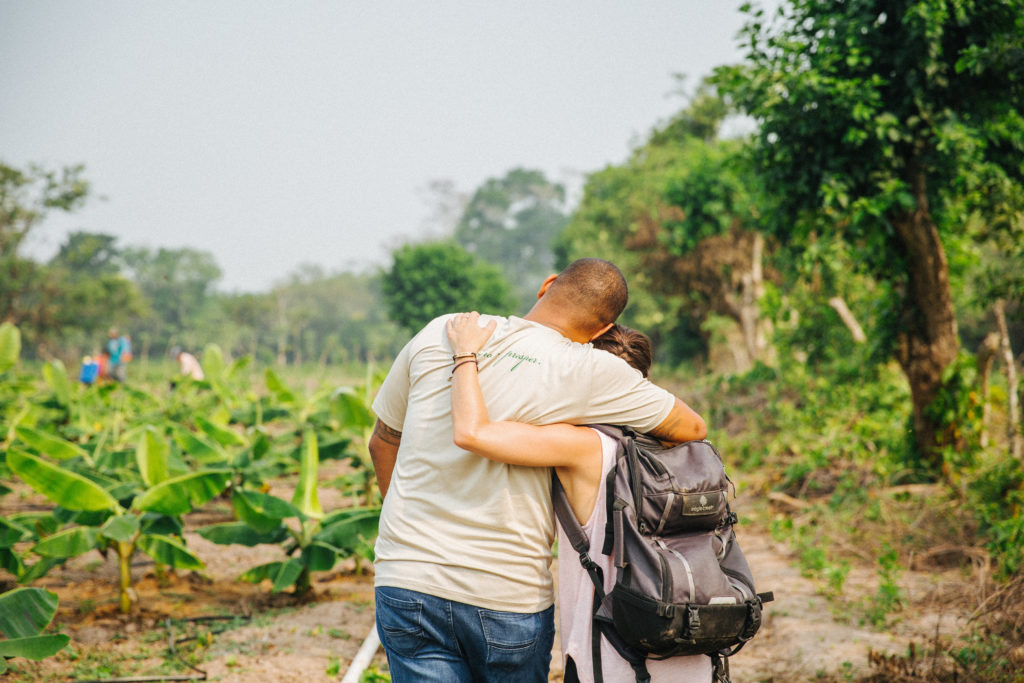
“One of the most surprising things I’ve learned on my leadership journey is that we can influence and sometimes even transform others’ lives with our testimony,” said Darwin. “When I think about the prison cell God pulled me from, and then think about where He has me now, I’m encouraged. It makes me want to keep moving forward. God’s powerful hand has been with me even before I gave my heart to Him!”
“We welcome and encourage comments on this site. There may be some instances where comments will need to be edited or removed, such as:
If you have any questions on the commenting policy, please let us know at heretoserve@globalleadership.org”
Recent Comments